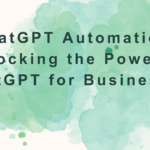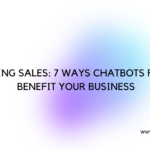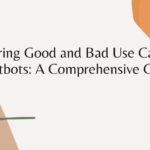In the ever-evolving landscape of business, lead generation stands as a fundamental pillar for growth and success. Converting potential customers into valuable leads is a continuous challenge for businesses across industries. However, with advancements in technology, particularly the rise of chatbots powered by artificial intelligence (AI), generating leads has become more efficient and effective than ever before. In this comprehensive guide, we will explore the immense potential of chatbots and how they can significantly impact lead-generation strategies for businesses.
1. Instant Response and 24/7 Availability
One of the key advantages of chatbots in lead generation is their ability to provide instant responses to customer queries. Unlike human agents, chatbots don’t require breaks or sleep, ensuring round-the-clock availability. Prospective customers seeking information or assistance can engage with chatbots at any time, significantly reducing response time and enhancing the overall customer experience.
When visitors find a website that offers immediate answers to their questions, they are more likely to stay engaged and explore further. This engagement boosts the chances of converting them into leads, as they feel valued and attended to, fostering a positive perception of the brand.
2. Personalized Interactions for Better Lead Qualification
AI-powered chatbots possess the capability to gather user data and analyze customer behavior. By understanding user preferences and interests, chatbots can engage in personalized interactions, tailoring responses and recommendations based on individual needs. Such personalized engagement not only increases customer satisfaction but also aids in lead qualification.
Chatbots can ask targeted questions during conversations to identify potential leads with high purchase intent. By collecting essential information, such as the prospect’s pain points, budget, and requirements, chatbots help businesses prioritize and nurture leads more effectively.
3. Streamlined Lead Nurturing
Once a lead is captured, effective lead nurturing becomes crucial for converting potential customers into loyal clients. Chatbots play a pivotal role in this aspect by facilitating automated and timely follow-ups. Through personalized messages, chatbots can offer relevant content, promotions, and product updates, tailored to the specific interests of each lead.
This automated lead nurturing not only saves time and resources but also ensures that leads remain engaged throughout their journey. As chatbots maintain regular communication, businesses can build lasting relationships with prospects, increasing the likelihood of conversion.
4. Cost-Efficient Customer Support
In addition to lead generation, chatbots prove to be a cost-efficient alternative to traditional customer support channels. By handling routine and frequently asked questions, chatbots lighten the workload of customer support teams, allowing them to focus on more complex issues.
This cost-saving measure enables businesses to allocate resources more effectively and invest in other aspects of lead generation and marketing. Moreover, as chatbots provide immediate answers, customer satisfaction improves, leading to positive word-of-mouth marketing and enhanced brand reputation.
5. Gathering Customer Insights for Enhanced Marketing Strategies
Every interaction with a chatbot provides valuable data and insights about customer preferences and pain points. By analyzing this data, businesses can gain a deeper understanding of their target audience and adjust their marketing strategies accordingly.
Chatbots help identify common customer concerns and frequently asked questions, which can guide businesses in creating relevant and informative content. Utilizing these insights, companies can craft marketing campaigns that resonate with their audience, leading to increased engagement and a higher number of leads.
6. Integrating Chatbots with Social Media and Messaging Platforms
Today’s consumers are highly active on social media and messaging platforms. Integrating chatbots with platforms like Facebook Messenger and WhatsApp enables businesses to reach their target audience where they spend a significant amount of time.
Chatbots can be programmed to engage in conversations, respond to inquiries, and share content directly through these platforms. This seamless integration not only expands the business’s reach but also creates more touchpoints for lead generation.
Further reading: How to Implement an Omnichannel Customer Service Strategy
Frequently Asked Questions
1. How can chatbots help in lead generation?
Chatbots can be incredibly valuable in lead generation for businesses. By deploying a lead generation chatbot, companies can automate the process of capturing potential customer information and qualifying leads. Here’s how chatbots aid in lead generation:
a. 24/7 Availability:
Chatbots can engage with website visitors and prospects at any time, even outside regular business hours, ensuring no leads slip through the cracks.
b. Instant Responses:
Chatbots provide immediate responses to inquiries, keeping potential customers engaged and preventing them from losing interest while waiting for human assistance.
c. Qualification and Segmentation:
Chatbots can ask relevant questions to qualify leads based on their preferences, needs, and buying intent. This segmentation helps businesses tailor their approach and marketing efforts.
d. Data Collection:
Chatbots can collect essential contact information from leads, such as names, email addresses, phone numbers, and other details, which can be used for follow-ups and future marketing campaigns.
e. Personalized Interactions:
Through AI-driven insights, chatbots can offer personalized recommendations and content, fostering a stronger connection with leads and increasing the chances of conversion.
2. What is a lead generation chatbot?
A lead generation chatbot is an AI-powered virtual assistant designed to engage with website visitors and potential customers in real time, with the primary objective of capturing and qualifying leads. It interacts with users through chat interfaces, simulating natural conversations and providing relevant information based on user inputs.
Lead-generation chatbots use intelligent algorithms to understand user intent and preferences, allowing them to ask targeted questions and gather vital contact information from interested prospects. These chatbots play a crucial role in streamlining the lead generation process, automating repetitive tasks, and enabling businesses to focus on converting high-quality leads into customers.
3. How can chatbots help the business?
Chatbots offer numerous benefits to businesses, contributing to increased efficiency, enhanced customer experience, and improved overall performance. Here are some ways chatbots help businesses:
a. Customer Support:
Chatbots can provide instant and accurate responses to customer queries, reducing response time and improving customer satisfaction.
b. Lead Generation:
As mentioned earlier, chatbots can engage with website visitors, qualify leads, and collect relevant data to fuel marketing efforts.
c. Cost Savings:
By automating repetitive tasks, businesses can reduce the need for human intervention, resulting in cost savings and increased productivity.
d. Personalization:
Chatbots can analyze user data and behavior to deliver personalized product recommendations and content, enhancing the customer experience.
e. 24/7 Availability:
With chatbots, businesses can maintain round-the-clock availability, catering to customers from different time zones and accommodating after-hours inquiries.
f. Data Analysis:
Chatbots generate valuable insights through user interactions, enabling businesses to understand customer preferences and make data-driven decisions.
4. How did chatbots help you increase sales?
As an AI language model, I don’t have direct experiences or interactions, but I can provide examples of how businesses have used chatbots to increase sales:
a. Improved Lead Nurturing:
By engaging with leads promptly and providing relevant information, chatbots can nurture prospects through the sales funnel, increasing the chances of conversion.
b. Upselling and Cross-selling:
Chatbots can analyze customer data and behaviors to suggest complementary products or upgrades, leading to additional sales opportunities.
c. Abandoned Cart Recovery:
Chatbots can remind customers about their abandoned shopping carts, offering incentives or assistance to encourage them to complete their purchases.
d. Personalized Recommendations:
Through data analysis, chatbots can offer personalized product recommendations, increasing the likelihood of customers finding products they are interested in.
e. Customer Retention:
Chatbots can provide post-purchase support, answer product-related queries, and address concerns, fostering customer loyalty and repeat business.
In summary, chatbots play a crucial role in lead generation, customer support, and sales optimization for businesses. Their ability to automate tasks, engage with customers in real time, and provide personalized interactions contributes significantly to the overall success of modern businesses.
Further reading: Maximizing Sales: 7 Ways Chatbots for Sales Benefit Your Business
Conclusion
In conclusion, chatbots have become indispensable tools for businesses aiming to generate leads and enhance customer engagement. Through instant responses, personalized interactions, streamlined lead nurturing, cost-efficient customer support, valuable customer insights, and integration with social media platforms, chatbots significantly impact lead generation strategies.
By embracing AI-powered chatbots, businesses can effectively capture, nurture, and convert potential customers into loyal leads. As technology continues to advance, the role of chatbots in lead generation will continue to evolve, providing innovative solutions for businesses seeking sustained growth and success in the competitive market.





